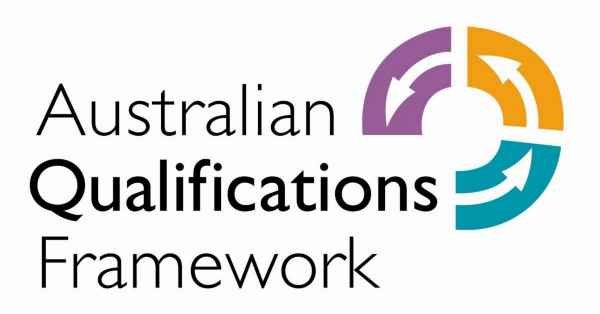Master Of Information Technology
MASTER OF INFORMATION TECHNOLOGY
Recognition under the Australian Qualification Framework
All KOI courses are accredited by TEQSA (Tertiary Education and Quality Standards Agency) and consistent with the AQF (Australian Qualifications Framework). TEQSA regulates qualifications in the Australian education system.
This means that KOI is recognized as providing its students with quality education for the courses on offer in line with Australia’s Higher Education Standards.
The Course Overview – can be used to view the course structure and sequence in which subjects should be studied. All subjects named (LISTED) in the Course Overviews are core subjects and must be studied to satisfy the requirements of the particular award.
The subjects in shaded boxes must be studied in the order they are presented as they provide pre-requisite knowledge for other subjects. The remaining subjects (core and elective) have a recommended trimester but may be studied in other available trimester slots to suit individual student preferences, provided pre-requisites have been completed.
Students may choose any elective subjects from the list following the Course Overview, provided the subject is offered in the trimester they wish to study it and they have met the relevant pre-requisites.

Master of Information Technology (CRICOS 0100969)
The Master of Information Technology (16 subject program) is studied over 4 trimesters spread over 2 calendar years. Students can choose to make use of the 3 trimesters offered and study continuously to reduce the time of their course completion. The course is designed for students from an IT background who have successfully completed an undergraduate degree in an IT area (information technology, information systems, software engineering, computer science) or students who have completed a Graduate Certificate of IT or Graduate Diploma of IT. The course includes core subjects in programming, database, project management and emerging technologies. The course also provides electives and specialisations in data analytics and cybersecurity which allows students to tailor their learning needs to suit their career goals. This course prepares the student for the growing demand from business for graduates to be able to work with emerging technologies. The capstone project ensures that students have the opportunity to gain experience applying their theoretical knowledge and practical skills to a significant real world project. It is anticipated that the Master of Information Technology will produce graduates who not only have the skills to help them achieve their career goals, but also the ability to make a significant, positive contribution to the workplace and to the society in which they live.
Course Learning Outcomes
- Demonstrate a mastery of information technology with an understanding of the knowledge, specialised skills and recent developments in order to identify, analyse and solve complex information technology problems
- Apply research principles and processes and engage in continuing independent learning in support of enhanced professional skills and knowledge in the area of information technology
- Critically review, synthesise, apply and evaluate contemporary information technology theories and apply professional skills and knowledge in the systematic development of complex information systems
- Communicate complex and appropriate information technology solutions effectively to stakeholders
- Apply IT knowledge and technical research skills, to plan and execute a substantial research- oriented capstone project
- Demonstrate high level personal autonomy, judgement, decision-making and accountability required for professional practice.
- Articulate an understanding of professional and ethical responsibilities and apply IT related skills and knowledge in a professionally responsible manner.
Delivery Mode
- Face-to-Face with blended learning facilities
Subject Credit Points
- 4 Credit Points each subject
Exit Pathways
- Graduate Certificate of Information Technology; Graduate Diploma of Information Technology
POSSIBLE CAREER PATHS
Depending on the specialisations chosen, graduates of the Master of Information Technology may find employment as a Software and Applications Programmer, Web Developer, System Analyst, Analyst Programmer, Cybersecurity Specialist, Security Architect, Security Analyst or Data Analyst. The course has also been designed as a pathway to ICT manager, ICT Consultant and Business Analyst.
STUDENT PROFILE
The table in the pop-up window here gives an indication of the likely peer cohort for new students at KOI. It provides data on students that commenced Master of Information Technology study and passed the census date in the most relevant recent intake period for which data are available, including those admitted through all offer rounds, across all Australian campuses, and international students studying in Australia.
ATAR PROFILE
The table in the pop-up window here gives ATAR profile for those offered places wholly or partly on the basis of ATAR in Trimester 1, 2023
ADMISSION REQUIREMENTS
General admission criteria apply to the course.
ATAR PROFILE
The table in the pop-up window here gives ATAR profile for those offered places wholly or partly on the basis of ATAR in Trimester 1, 2023
ADMISSION REQUIREMENTS
General admission criteria apply to the course.
COURSE OVERVIEW
Third Trimester
| ICT728 | Capstone Project 1 (Pre-req: 8 subjects completed, ICT712, ICT713) (ICT729 must be enrolled in consecutive trimester) |
| IT/General Elective |
|
| IT Elective |
|
| IT Elective |
Fourth Trimester
| ICT729 | Capstone Project 2 (Pre-req: ICT728) |
| IT/General Elective |
|
| IT Elective |
|
| IT Elective |
Electives: Provided that pre-requisites have been met, and the subject is offered in the trimester, students may choose any electives provided in this trimester from the list below (Pre-requisite shown in brackets).
IT Electives:
ICT722 Information Security
ICT723 Virtualisation and Cloud Computing
ICT724 Intelligent systems
ICT725 User Experience and Mobile Application Development
ICT726 Web Development (Pre-req: ICT711)
ICT730 Applied Analytics and Visualisation (Pre-req: ICT713, ICT731, BUS708)
ICT731 Data Mining (Pre-req: ICT713, ICT724)
ICT732 Big Data (Pre-req: ICT713, ICT731)
ICT733 Social Web Analytics (Pre-req: ICT713, ICT731, BUS708)
ICT740 Applied Cybersecurity (Pre-req: ICT722)
ICT741 Digital Forensics (Pre-req: ICT722)
ICT742 Cloud Privacy and Security (Pre-req: ICT722)
ICT743 IoT Security (Pre-req: ICT722)
Data Analytics Specialisation
Choose at least 4 electives from the list below:
ICT724 Intelligent systems
ICT730 Applied Analytics and Visualisation (Pre-req: ICT713, ICT731, BUS708)
ICT731 Data Mining (Pre-req: ICT713, ICT724)
ICT732 Big Data (Pre-req: ICT713, ICT731)
ICT733 Social Web Analytics (Pre-req: ICT713, ICT731, BUS708)
Cybersecurity Specialisation
Choose at least 4 electives from the list below:
ICT722 Information Security
ICT740 Applied Cybersecurity (Pre-req: ICT722)
ICT741 Digital Forensics (Pre-req: ICT722)
ICT742 Cloud Privacy and Security (Pre-req: ICT722)
ICT743 IoT Security (Pre-req: ICT722)
General Electives
ACC700 Principles of Accounting
ACC701 Financial Accounting (pre-req: ACC700)
ACC703 Accounting Information Systems (pre-req: ACC700)
ACC704 Companies and Securities Law (pre-req: BUS702)
BUS700 Economics
BUS702 Business Law
BUS707 Applied Business Research
FIN700 Financial Management



